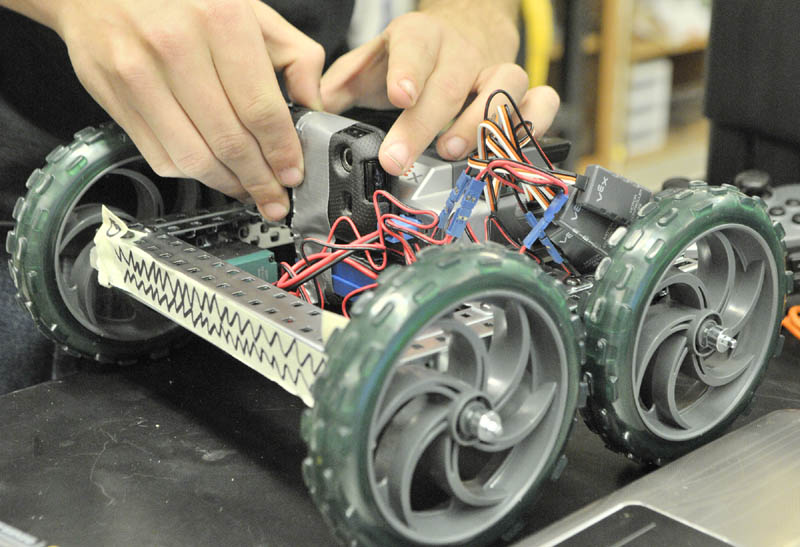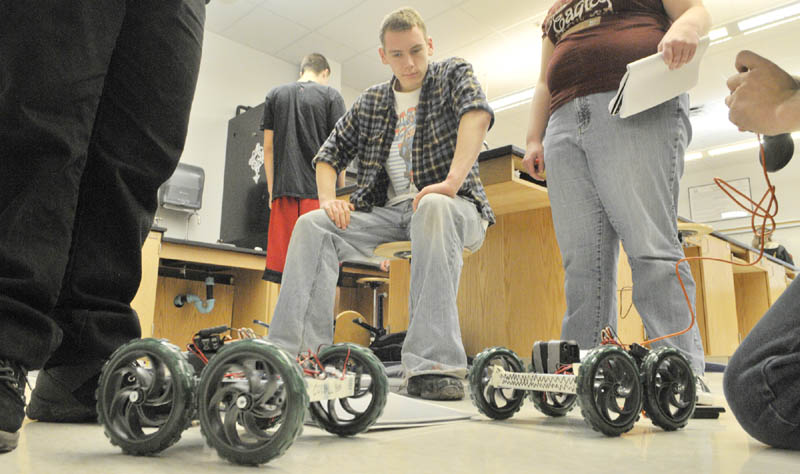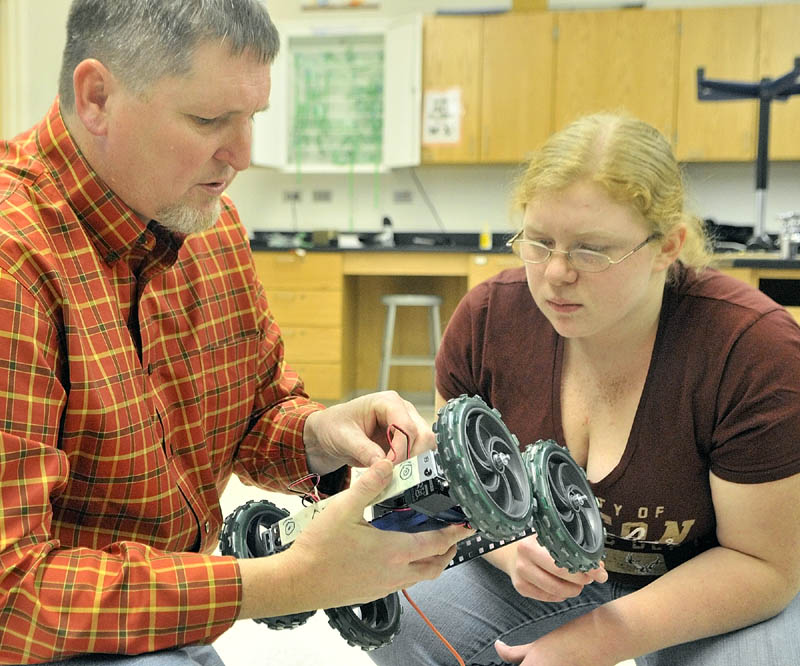AUGUSTA — In a room at Cony High School, textbooks were piled on the floor, stools were lying on their sides and yardsticks formed the span of a bridge.
Students fiddled with joysticks, guiding robots they built from kits around and over the obstacles.
At least, they tried. On Thursday morning, a few days into their robotics unit, they had some problems to work out.
Those skills — identifying a problem, analyzing it and devising a solution — are exactly what students are supposed to learn in STEM class, being offered for the first time this year at Cony.
STEM stands for science, technology, engineering and mathematics, and educators and public officials all over the country are trying to strengthen education in those fields.
Few schools, however, have a class like Cony’s, dedicated specifically to STEM and the projects-based, problem-solving educational approach associated with it.
Science teacher Jeff DeJongh proposed the class to replace the tech-level physics class he had taught for several years.
The previous class used algebra rather than more advanced math and taught broad concepts.
“It never really seemed to hit the mark,” DeJongh said. “I got the kids through it, but it never seemed to have a whole lot of relevance.”
This fall, DeJongh started by teaching his dozen students about engineering processes, including research, design and trouble-shooting. Then he gave them tasks that they had to figure out how to accomplish.
In one unit, they had to design a Rube Goldberg device incorporating six simple machines to launch a Ping-Pong ball.
After winter break, they’ll take what they’ve learned in the initial stage of their robotics unit to build robots of their own design.
“They’re into it,” DeJongh said. “It doesn’t seem like I’m teaching at all. I just direct them and they do it.”
Occasionally, however, the students need pushing to create a detailed plan in advance of testing a solution, rather than falling back on trial-and-error.
DeJongh also is finding his way as he goes because this is his first time through the course. With his new students next semester, for example, he probably won’t repeat a unit testing the property of metals.
“There were a couple of days where as I’m designing the course I go, ‘OK, that didn’t work,'” he said.
On Thursday, DeJongh helped guide seniors Walker Cooper and Anthony Collentro through trouble-shooting the wireless connection between their joystick and their robot, which disconnected several times a minute.
Senior Tyler Morse flipped through a notebook where he’s taken detailed notes on the process of building his group’s robot, including problems they encountered and the solutions.
“If we had to rebuild that robot, we could probably do it twice as efficient because we know what’s going on,” he said.
Junior Brittany Manson appreciates that the class is hands-on for the students and hands-off for DeJongh.
“In other science classes you just sit down, take notes, sometimes do a project and just listen to the teacher,” she said. “Unless we need help, (DeJongh) doesn’t interfere at all.”
Manson wants to design video games. She enjoys both shooting games such as Call of Duty and problem-solving games like Legend of Zelda.
“If I know how to build a robot like this I might be able to take it and put it in a video game,” she said.
Susan McMillan — 621-5645
smcmillan@mainetoday.com
Send questions/comments to the editors.





Comments are no longer available on this story